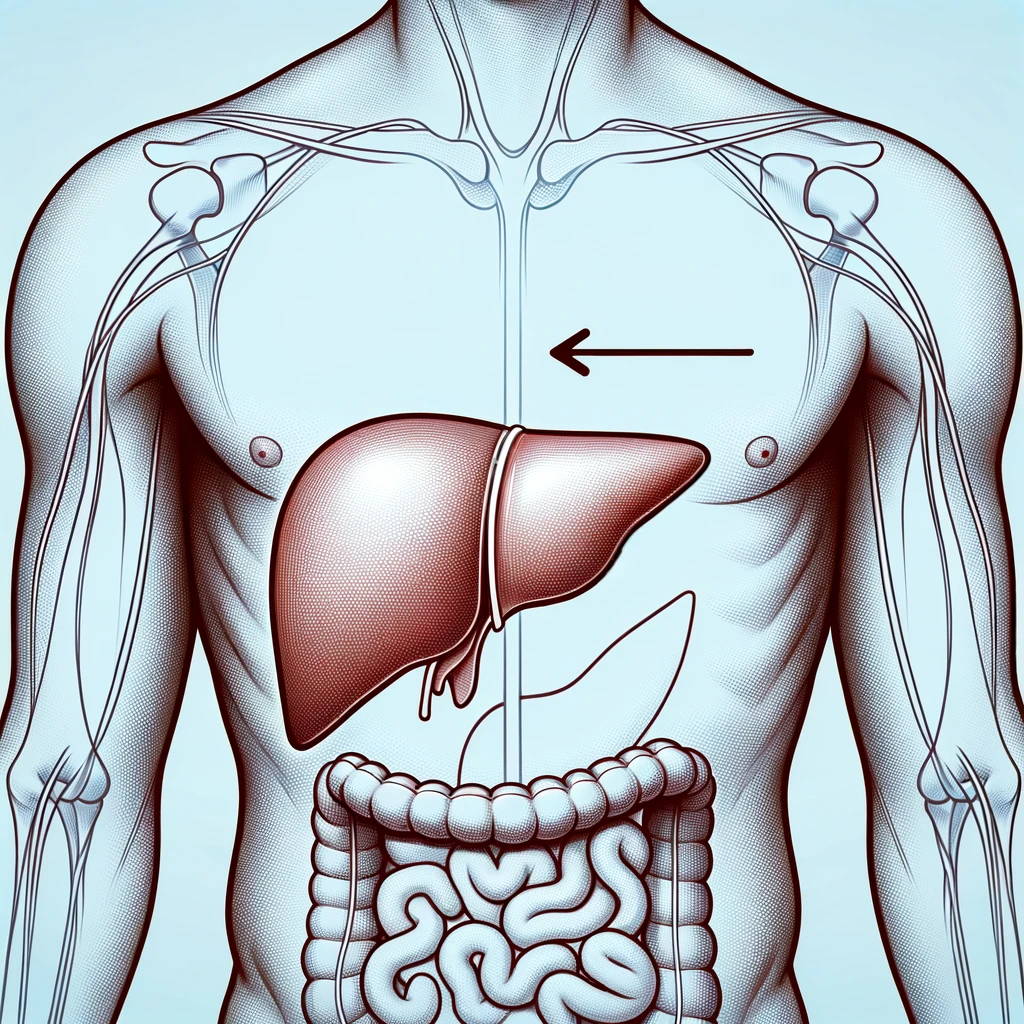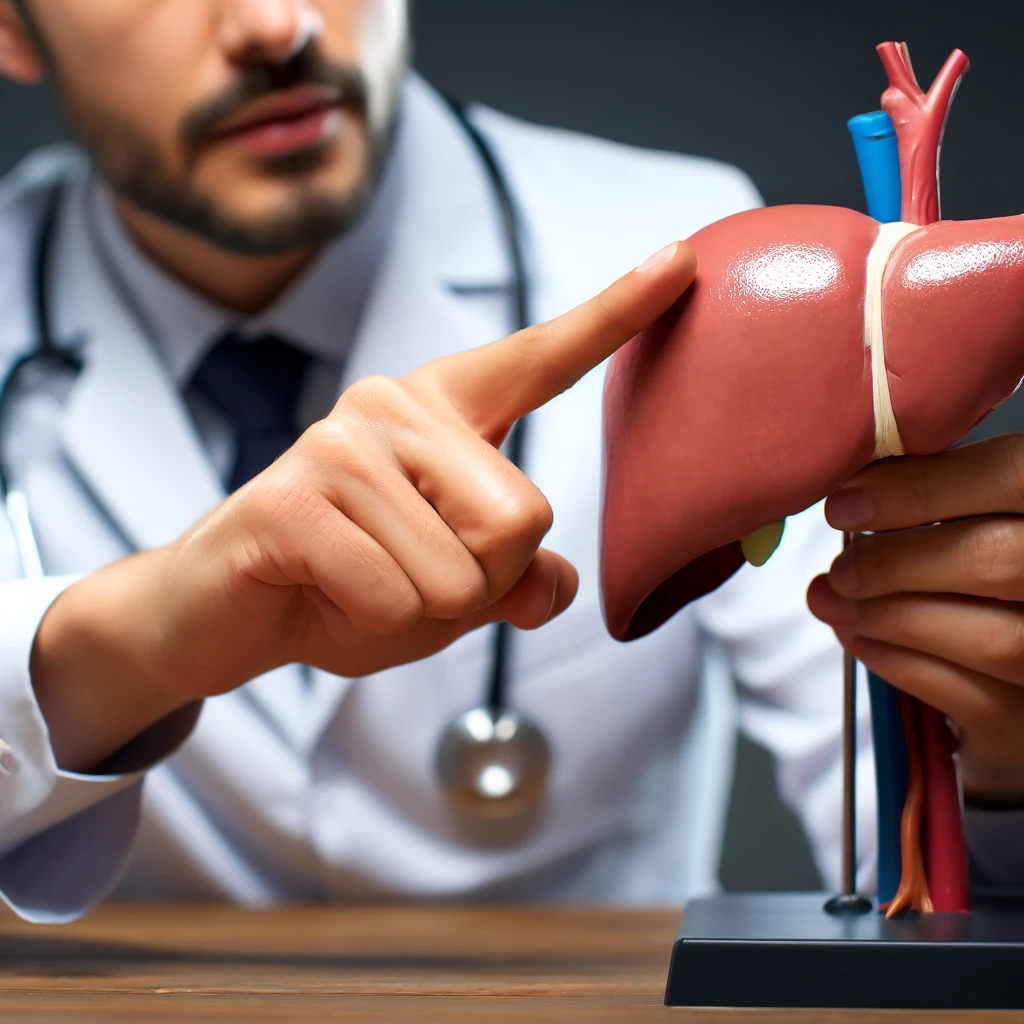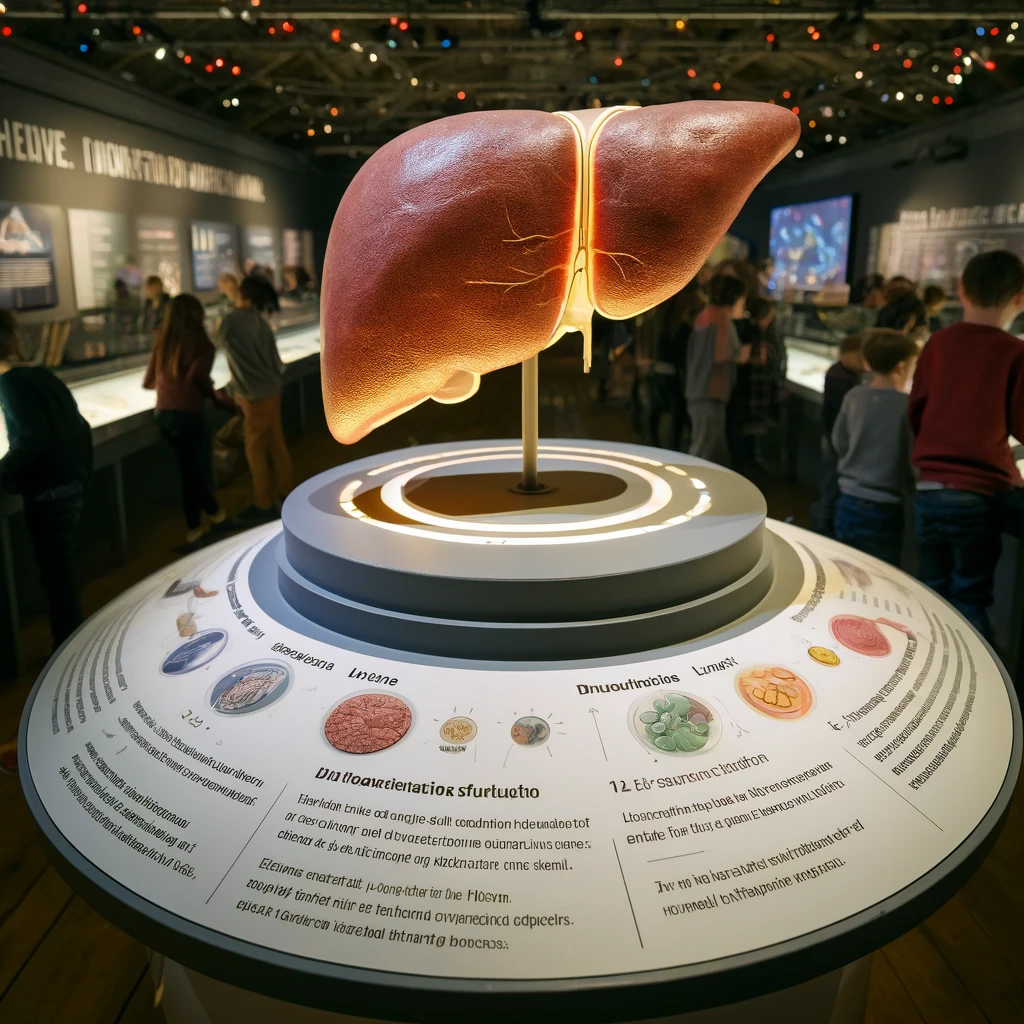Liver
Definition
A large, lobed glandular organ in the abdomen of vertebrates, involved in many metabolic processes.
Parts of Speech
- Noun
Pronunciation
American English
- IPA Pronunciation: /ˈlɪvər/
- Respelling: LIV-er (with "LIV" as in "give" and "er" as in "her")
British English
- IPA Pronunciation: /ˈlɪvə/
- Respelling: LIV-uh (with "LIV" as in "give" and "uh" as in "sofa")
In both dialects, "liver" places the primary stress on the first syllable, "LIV." The American pronunciation uses a pronounced "er" sound at the end, while the British pronunciation uses a softer "uh" sound.
Etymology
The term "liver" originates from Old English "lifer", which is related to Dutch "lever" and German "Leber", all referring to the same organ.
Derivatives
- Liverish
- Liverwort
- Liverwurst
- Livered (as in "lily-livered")
- Liver function
Synonyms
- Hepatic organ
- Viscus
- Gland
Antonyms
- None
Usage
The liver plays a crucial role in metabolism, detoxification, and digestion. It is also a central focus in various medical studies and treatments due to its significance in overall health.
Related Terms
- Hepatitis
- Cirrhosis
- Bile
- Hepatic
- Bilirubin
Detailed Definition
Noun
- Liver (Noun): A large lobed glandular organ in the abdomen of vertebrates, involved in many metabolic processes.
- Example: "The liver filters toxins from the blood and produces bile for digestion."
In summary, the liver is a vital organ with a wide range of essential functions, including detoxification, protein synthesis, and digestion. Its importance in medical science and overall health is significant, making it a central focus of study and treatment in various healthcare fields. Derived from the Old English "lifer," the term has a consistent presence in Germanic languages.
liver



🇨🇳 Mandarin
- 肝脏 (Gānzàng)
- IPA: [kán.tsʌ̀ŋ]
- Respell: Gan-tsang
🇮🇳 Hindi
- जिगर (Jigar)
- IPA: [d͡ʒɪɡər]
- Respell: Jigar
🇪🇸 Spanish
- Hígado
- IPA: [ˈiɣaðo]
- Respell: Ee-ga-do
🇫🇷 French
- Foie
- IPA: [fwa]
- Respell: Fwa
🇸🇦 Modern Standard Arabic
- كبد (Kabid)
- IPA: [ˈkæbɪd]
- Respell: Kab-id
🇧🇩 Bengali
- যকৃত (Yakṛt)
- IPA: [jɔkɾit̪]
- Respell: Yo-krit
🇷🇺 Russian
- Печень (Pechen')
- IPA: [ˈpʲet͡ɕɪnʲ]
- Respell: Pye-chen'
🇵🇹 Portuguese
- Fígado
- IPA: [ˈfiɣadu]
- Respell: Fee-ga-doo
🇮🇩 Indonesian
- Hati
- IPA: [ˈhati]
- Respell: Ha-tee
🇩🇪 German
- Leber
- IPA: [ˈleːbɐ]
- Respell: Lay-ber
🇯🇵 Japanese
- 肝臓 (Kanzō)
- IPA: [kaɴzoː]
- Respell: Kan-zo
🇻🇳 Vietnamese
- Gan
- IPA: [ɡan˧˧]
- Respell: Gan
🇰🇷 Korean
- 간 (Gan)
- IPA: [ɡan]
- Respell: Gan
🇹🇷 Turkish
- Karaciğer
- IPA: [kaɾaˈd͡ʒiɟeɾ]
- Respell: Ka-ra-jee-ger
🇵🇰 Urdu
- جگر (Jigar)
- IPA: [d͡ʒɪɡər]
- Respell: Jigar





